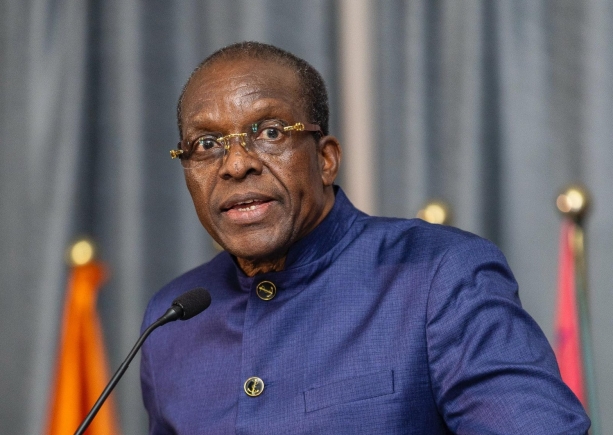
Justice Baffoe-Bonnie’s vetting: Speaker rules against motion for Parliament to stay vetting
The Speaker of Parliament, Alban Sumana Kingsford Bagbin, has ruled against the proposed motion by the Minority Leader, Alexander Afenyo-Markin, for Parliament to hold on with the Monday vetting of the President’s Chief Justice nominee, Justice Paul Baffoe-Bonnie.
He said he had considered deeply the proposed motion and concluded that there was no basis for him to exercise the discretion to admit the motion.
Mr Bagbin explained that there was no need for Parliament, as an arm of the state, to put on hold Justice Baffoe-Bonnie’s vetting until the Supreme Court decided on a matter pending before it.
He, therefore, described the proposed motion and its suggestion as constitutionally and procedurally unsustainable.
“In summary, the major points of this ruling is that motion is inadmissible and the same has been returned to the sponsor, the Minority Leader, Alexander Afenyo-Markin, as stated clearly by the standing orders,” he said.
Motion out of order
In a ruling to bring a finality to the admissibility or otherwise of a proposed motion by the Minority Leader, Mr Bagbin said he had considered the provisions on admissibility of motion and “I submit that the proposed motion is out of order”.
“I am convinced that the Supreme Court is vested with adequate powers to reverse any action should they deem it unconstitutional.
Why motion?
The Minority Leader’s motion suggested that Parliament, as an arm of state, should stay its hand until another cognate arm of state took action on a matter pending before it, even where there was no definite time for that arm of state to take that action.
Warning of the Minority’s intent to halt Justice Baffoe-Bonnie’s vetting, Mr Afenyo-Markin said that until ongoing court cases involving the nominee’s predecessor, Mrs Gertrude Torkornoo, were resolved, Parliament must stay his vetting.
Refusal to admit motion
But in his ruling, the Speaker said he returned a proposed motion paper submitted by the Minority Leader to the Clerk-to-Parliament.
He said as required by Order 1024 of the Standing Orders, he provided reasons on the face of the proposed motion paper for his refusal to admit the motion.
He said the Clerk-to-Parliament received the proposed motion on October 28, 2025.
The motion, he said, was forwarded to his office the same day (October 28), and it was later transmitted to him.
In considering the admissibility of the motion, Mr Bagbin said he was guided by the provisions of the Constitution, the Standing Orders of the House and precedents of parliamentary practice.
He said Orders 102 and 103 vested discretionary powers in the Speaker to determine whether a motion was admissible or not.
In exercising such powers, he said he was the Speaker must be guided by provisions as stated in Orders 103 of the Standing Orders to either direct that the motion be printed or that the motion was to be returned as inadmissible.
“I have considered deeply the proposed motion and I considered the text and I concluded that there is no basis for me to exercise the discretion to admit the motion,” he said.
Clear duty
The Speaker said article 144(1) of the Constitution gave Parliament a clear and continuing duty to consider the President’s nomination for Chief Justice
“That duty is not conditional on event elsewhere; there is no constitutional or Standing Orders basis for Parliament to halt the process simply because there are pending cases in court.
“Should I submit that argument, it will mean that any litigant could hold Parliament hostage and freeze the work of Parliament and its committees.
“And that will undermine the concept of separation of powers and paralyse the constitutional machinery fulfilling, in this particular case, key offices of state,” he said.
Mr Bagbin reminded the House that he was very mindful of Article 2 of the Constitution, especially Clause 2 of that article, which vested the Supreme Court with the powers to make orders and give such directions as it might consider appropriate for giving effect or enabling effect to be given to declarations it had made.
“This article clearly states that should there be any unconstitutionality regarding the removal of Her Ladyship Justice Torkornoo, the court is vested with the power to so declare and make all necessary orders needed to restore the status quo.
“To that end, I am of the view that courts can continue to hear whatever matters are pending before them, but until there is an injunctive order, Parliament's authority remains intact,” he said.
Mr Bagbin added that Judicial independence should not mean legislative paralysis.
He said he had consistently questioned whether the Supreme Court could use its injunctive relief to undermine the work of another arm of the state, saying that “is that the purpose of the relief”?
